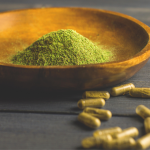We all know how important our immune system is for staying healthy. It’s a part of our body that is constantly working to protect us from the bad stuff that the world throws at us. The immune system has several amazing functions, including fighting off bacteria, viruses, and parasites and making antibodies to prevent those bad things from causing harm. Unfortunately, the immune system can be weakened by many factors, often as a result of taking medication. To prevent this from happening, you should make sure you are getting the right vitamins and supplements, including those for your immune system.
In the vast and often overwhelming world of supplements, discerning which products are genuinely beneficial from those that lack substantial benefits can be a daunting task. The key to navigating this complex market is to focus on supplements that are not only backed by solid research but also known for their natural, health-promoting properties. Among such supplements, those designed to bolster the immune system have gained significant attention, especially in times when maintaining health is paramount. Ingredients like ginger, turmeric, and black pepper are frequently cited for their health benefits, including their potential to enhance immune function. Supplements rich in turmeric black pepper ginger, in particular, can capitalize on the synergistic effects of these components to offer a powerful boost to the immune system.
Immune system pills are a hot trend, and you can find plenty of them on the market. The best immune system supplements should be able to boost your immune function, improve your natural killer cell count, and defend your body against infection. Another category that has grown in popularity are nootropics supplements, which aim to enhance cognitive function. Some research indicates that they may improve memory and focus. However, it’s important to choose nootropics backed by solid evidence, as many make big claims without proper studies.
Here are some examples of supplements to boost your immune system:
- Omega-3 fatty acids are essential to our health. However, many people may not know that they are also essential to the health of our immune system. These essential fatty acids are found in plant oils, nuts, soy, seafood, eggs, and poultry.
These fatty acids are a well-researched nutritional component that has been shown to provide significant health benefits through several mechanisms. Some of these benefits include: reducing inflammation, which is believed to be a key cause of many chronic medical conditions, including cancer; improving brain function, which has been shown to provide a protective effect against cognitive decline and dementia; and enhancing immune function. In the United States, the average intake of omega-3s is 200mg/day, far below the recommended 600mg/day intake.
- Probiotics are good bacteria that have been shown to positively impact a host of health conditions, from colds to digestive problems and from skin conditions to allergies. They’re so powerful because they’re incredibly diverse in their functions and can even have a direct impact on our immune systems. The U.S. Department of Agriculture has declared that probiotics can be considered a type of nutrient that can lead to a significantly increased risk of heart disease.
They are live bacteria that can live in your gut (the intestine), helping your immune system function properly. Researchers have tested probiotics on people with gut problems, including irritable bowel syndrome (IBS), colitis (inflammation of the colon), and Crohn’s disease (a type of inflammatory bowel disease). Probiotics can help treat food allergies, asthma, eczema, and other conditions, and they may also reduce the risk of some cancers.
- Vitamin D is considered a “vital vitamin” due to its wide-ranging role in the body. It’s essential for bone health, muscle and tissue growth and repair, and immune system health, among others. Vitamin D can provide very important functions for your immune system, and research demonstrates that a deficiency of vitamin D can lead to a reduction in your immune system function. Vitamin D can help boost your immune system by providing a crucial step in the immune system processes that the immune system needs to function properly. It is equally important for both adults as well as children. Supplements are available in liquid forms, such as what Thorne (https://www.thorne.com/products/dp/vitamin-d-liquid) provides, as well as in pill form. Of course, the liquid form makes supplementation easy when it comes to kids’ intake.
- Melatonin is a hormone produced by the pineal gland in the brain. Its primary role is regulating sleep and wakefulness, but researchers often refer to it as a hormone that can help fight viruses and other infectious diseases. Certain immune cells produce melatonin, and it has been speculated that these cells play a role in fighting infections. Our bodies produce melatonin naturally, but we can also get it from certain foods and supplements.
- Curcumin, found in abundance in curry, is a close relative of turmeric, also known as “Indian Saffron,” and it is known for its medicinal properties. Its yellow pigment, called curcumin, is the active ingredient in curcumin, which has been used for thousands of years in traditional medicine. Curcumin is thought to be the key to the health benefits of turmeric. It’s commonly used in supplements to help boost the immune system, fight cancer, and improve overall health.




